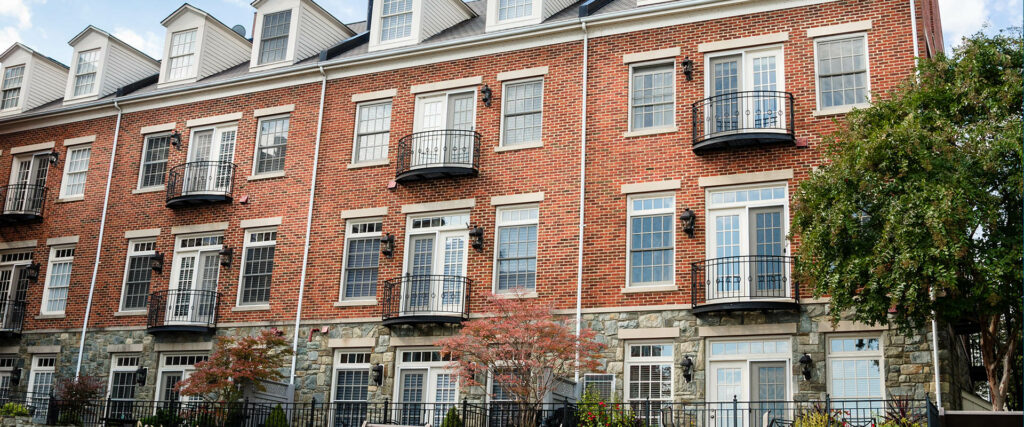Written by Amira Hamwia, consultant and realtor with Homes of Tennessee and Luxury Homes of Tennessee
Several clients have asked for clarification, and I can see why. In fact, it’s a great question!
The answer isn’t so obvious if you aren’t working inand-quite honestly- I’ve even heard real estate agents mix up the terms.
Zero Lot Line
This technical term comes from practicality. With a zero lot line, one or more portions of the structure sits on or near the edge of a property line-meaning “zero” lot or land is to be had. The front or back of the property may sit close to the street. Often, a zero lot line implies there is a shared central wall between units. Duplexes, townhouses, and condos all have the potential to fall into this category.
Now that we have that definition out of the way, let’s break things down a bit further.
If you are currently renting, try and change gears and think as a homeowner as the main similarities and differences can be best defined in terms of ownership and deed.
Duplex
The biggest thing to understand about a duplex (or a triplex or quadplex,) is there is only one deed. Basically, the entire structure is owned by one owner. Ownership includes the lot it sits on, the roof, the yard and anything else. With a duplex, there are two separate units and living spaces with an adjoining wall usually down the middle. If you live in a duplex, you are in close quarters with your neighbor, yet you probably have more privacy and freedom than you would in an apartment. If you own a duplex, it’s kind of like owning two in one. You may be landlord to two separate tenants or families. Or, you may live in one side and rent out the other. If you don’t mind the responsibility that comes with being a landlord and can get a good deal, you may can pay your entire mortgage from the rent you charge. Not a bad financial investment for the right person in the right situation!
Townhouse
A townhouse is similar to a duplex in terms of living arrangements because it may also share a wall with the neighbors and puts you in close proximity, however, each unit is a separate entity and comes with its own deed. Imagine a neighborhood of homes. Now imagine putting them in a straight horizontal row where they are all touching each other. Add an adjoining wall in-between the homes, and this is a good way to mentally capture the idea of townhouses. You own any yard that is attached to the front or back of your property. With a townhouse, you can more or less do what you want with your property provided what’s done won’t have an adverse effect on the neighboring properties and assuming changes you make don’t violate some other rule or regulation previously given. You will usually pay a monthly fee to a homeowners association. Since you will be pretty independent as a homeowner, keep in mind you may be responsible for handling a great deal of maintenance and repairs rather than the association. Each association, however, is different. Be sure you understand what your monthly fee goes towards, what your responsibilities are, and what-if any-repairs are paid and/or handled by the association. For example, what happens if your roof (the one which you share with your neighbors,) needs replacement? These are some of the questions you’ll want to have answers to before purchasing a townhouse.
Condo
I like to think of a condo similar to a fancier apartment complex for homeowners. This is because it is often a small piece sitting inside a large sum. Certain parts are individually owned and operated by each individual homeowner. Others are jointly owned or shared such as a lobby, fitness room, or other spaces. With a condo, there will always be a homeowners association. Since this association will likely handle more than that of a townhouse, you’ll want to be really sure you feel good about it. How well do they maintain common areas? What rules are already in place? How are decisions made? What level of participation is required by you and the other homeowners? These are just some of the things you’ll want to consider before making a decision to purchase a condo. You are often committing to the homeowners association just as much as you are the condo itself.
As you can tell, confusion around the various terms is not without reason!
No matter what jargon is used loosely in conversations, make sure when it comes to purchasing your next home that you and your real estate agent are on the same page about what you want and don’t want. Be sure you do your research and have a clear understanding of the different kinds of homes and their implications for you as a homeowner. Lastly, never hesitate to speak up! Ask your real estate agent for clarification anytime you need. There are NO stupid real estate questions, and these type of questions and answers are among some of the most important to understand as a buyer!
Written by Amira Hamwia, Consultant and Realtor with Homes of Tennessee & Luxury Homes of Tennessee serving the Greater Nashville Area. Amira can be reached any time regarding real estate at 615-987-3613. You can also email her at amira@homestenn.com or visit her at her firm. Homes of Tennessee and Luxury Homes of Tennessee is located at the Fountains at Gateway, Suite D. Murfreesboro, 37129








